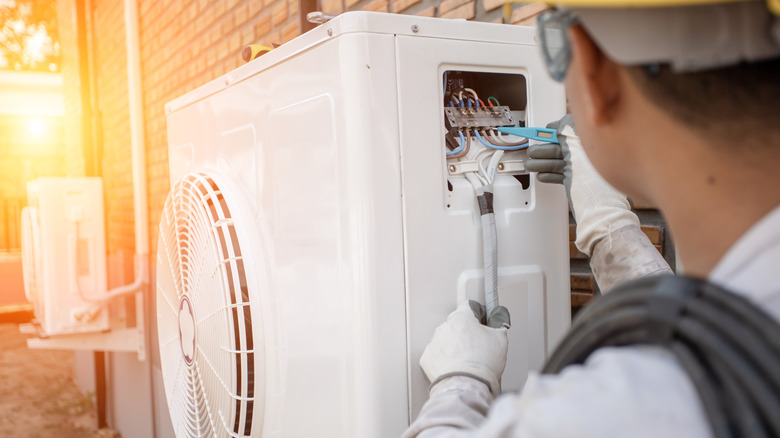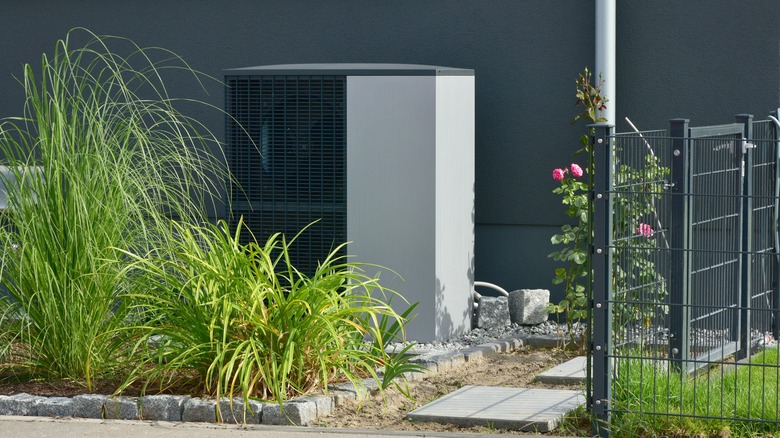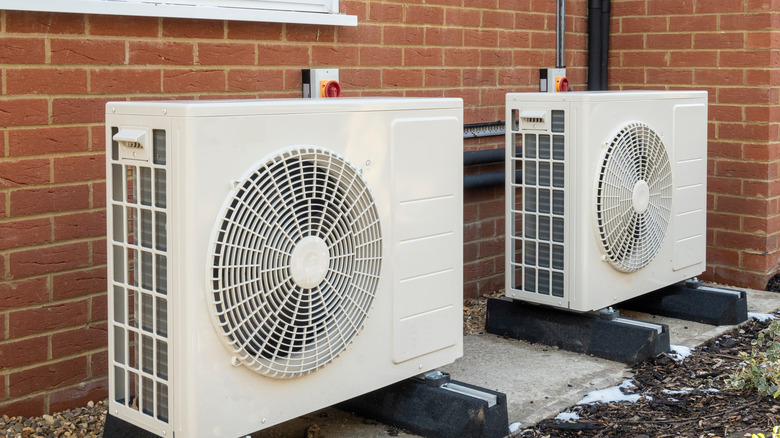Mistakes Everyone Makes When Buying A New Air Conditioner
According to the U.S. Department of Energy, installing a new air conditioner is something that homeowners will have to do every 15 to 20 years. This process can be both time-consuming and nerve-wracking, to say the least. However, a properly selected and correctly installed air conditioning unit can make all the difference to the comfort that your home provides. Selecting the appropriate air conditioner requires an understanding of a few key areas, and it's much easier than you might expect to overlook certain important aspects.
Taking the time to ensure that you're making sound decisions should give you many years of service with little in the way of trouble. Northern Climate Control notes that it's always a good idea to work with an HVAC professional, rather than doing this job yourself, as they naturally have a comprehensive understanding of cooling systems and their components. They can also give you an honest appraisal of the best options for your home. Whether you live in a small bungalow or a mansion with multiple rooms, a professional in the industry is a must-have ally when replacing your air conditioner.
Installing the wrong type or size
It's very easy to pick out the wrong sized air conditioner. As Northern Climate Control reports, many homeowners are mistakenly under the impression that a larger air conditioning unit is better at cooling their home. However, this often isn't the case. Likewise, not all small air conditioners are cheaper than larger units, therefore, working with a professional will help you select the appropriate type of air conditioner for your home.
Air conditioners that are too large for a home will do the same job as a smaller unit but will cause a massive drain on your total energy use, increasing the cost to heat or cool the home by a significant margin. Conversely, an air conditioning unit that isn't large enough will have to work overtime to provide the same function, making potential breakdowns and untimely replacement more likely. Cool Today reports that an oversized air conditioner also suffers from the same basic problem. It will quickly achieve the desired temperature and shut off, creating a constant loop of starting and stopping that wears out the parts faster than anticipated in a properly installed AC system.
Forgetting to do your research
In addition to selecting the appropriate size for an AC system, homeowners have some additional homework to do. In advance of the purchase, it's important to evaluate your options in terms of energy efficiency. In addition, you should also source a few estimates rather than accepting the first price from a retailer or installer. Northern Climate Control recommends that homeowners should seek out at least three estimates once they've consulted with a professional and decided on a suitable model. Pricing can vary significantly, and the estimates may or may not include installation. Shopping around for the best deal is an important part of the buying experience.
Energy efficiency also plays a role in the ongoing operational costs of a new unit. An air conditioner with better efficiency statistics will cost less to run, and over a period of 15 to 20 years, this can really add up. As a result, it's a good idea to also consider models that will give you the best value over the long term rather than focusing solely on the bare cost of the appliance. Energy-efficient units often come with rebate offers as well, which can provide you with a great financial incentive.


